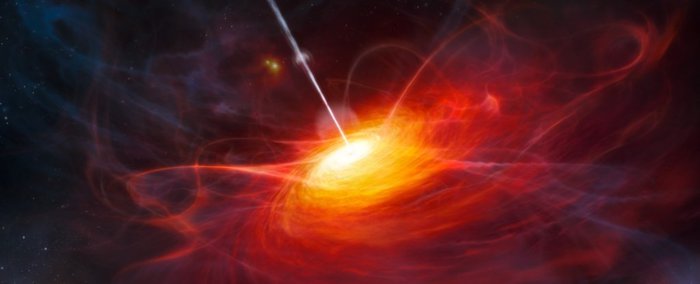(ANSA) - ROME, JULY 3 - It is bigger and more voracious than expected: discovered for the first time in 2018, it is a record black hole capable of devouring the equivalent of one Sun per day. In-depth analyzes of the past few years show that it is 8,000 times larger than the black hole in the center of the Milky Way and that its mass is 34 billion times that of our star. His identikit is described in the study published in the Monthly Notices of the Royal Astronomical Society by astrophysicists of the Australian National University, coordinated by Christopher Onken.
This cosmic cannibal which, thanks to its boundless gravitational attraction, devours everything that happens within range, including light, dwells in the center of the galaxy J2157, billions of light years from the Solar System, dating back to when the universe was still young.
The authors of the study calculated that the radius of the event horizon of this black hole, that impassable limit beyond which everything ends up in its jaws, is around 670 times the average distance between the Earth and the Sun, equal to about 150 billion kilometers, that is more than five times the size of the Solar System. "It is one of the largest and most voracious black holes in the universe and we still don't know how it formed," explained Onken. To get an idea, astrophysicists add, it is as if the black hole in the center of our galaxy devours two thirds of its stars. "We are very excited - Onken concluded - because this black hole will help us learn a lot about the galaxy in which it is growing". (HANDLE).
A record black hole devours one sun a day
2020-07-04T19:06:35.579Z

(HANDLE)(ANSA) - ROME, JULY 3 - It is bigger and more voracious than expected: discovered for the first time in 2018, it is a record black hole capable of devouring the equivalent of one Sun per day. In-depth analyzes of the past few years show that it is 8,000 times larger than the black hole in the center of the Milky Way and that its mass is 34 billion times that of our star. His identikit is described...


